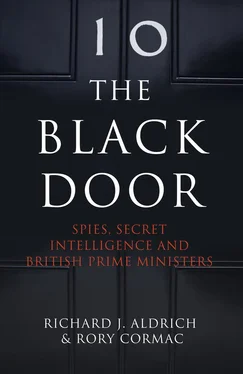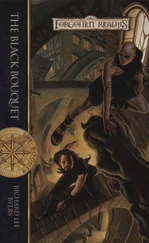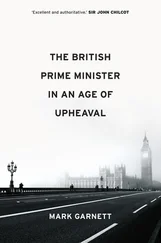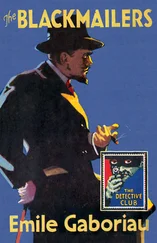Churchill’s wartime government was itself a school for secret service. Around him, Britain’s future leaders learned the business of intelligence and its importance to the practice of statecraft. Thereafter, Britain’s next few prime ministers – all veterans of Churchill’s wartime government – understood the value of secret sources and the event-shaping power of intelligence. Trained in the sophisticated integration of intelligence and policy, his successors realised that it formed a crucial instrument for any leader in a perilous period of British decline. Secret service was part of the ‘fancy footwork’ of retreating empire that could potentially turn the tide in colonial bushfire wars, gain an upper hand in manoeuvrings against the Soviets, and even deceive Washington or Brussels.7
Churchill constituted an improbable double act with Clement Attlee. Serving as Churchill’s wartime deputy, Attlee took a quiet interest in intelligence from the very first week he entered office, including the sensitive matter of interning Nazi sympathisers.8 As early as the autumn of 1940, he was arguing for a single authority to coordinate and improve intelligence.9 Later, he led an inquiry into one of darkest episodes of the war, the Gestapo penetration of Britain’s resistance efforts. Despite his public reputation for timidity, Attlee hid an inner toughness. After 1945, he quietly sanctioned numerous covert operations behind the Iron Curtain and across the Middle East. He also recognised the importance of MI5, of positive vetting and of domestic counter-subversion – even at the risk of frustrating his own backbenchers. Most importantly, he completed Churchill’s project, developing new mechanisms that improved Downing Street’s control over secret service. Indeed, by 1951, deliberately seeking to capture corporate memory and learn the lessons of the preceding ten years, Attlee completed the Churchillian revolution, harnessing the power of the hidden hand to state policy and creating a connected British intelligence community for the first time.10
Anthony Eden and Harold Macmillan had also learned about the growing power of secret service during the war. Eden in particular had endured a series of vexatious confrontations with SOE, which appeared at times to be conducting a parallel foreign policy. In 1942, confronted with yet another improbable episode, he peevishly exclaimed, ‘Am I foreign secretary or am I not?’ Yet once ensconced in Downing Street, both Eden and Macmillan recognised the value of secret service. They also realised that the CIA was quietly being used to expand American influence while bypassing the political, economic and military constraints associated with overt intervention. Accordingly, as well as launching their own covert operations, the prime ministers’ relations with presidents Eisenhower and Kennedy often involved selling cooperation on Anglo–American secret wars against figures like Nasser and Sukarno to the White House.11
More recent prime ministers did not, of course, serve under Churchill or Attlee. But all experienced their legacy inside Number 10. Churchill brought the intelligence machine more firmly into Downing Street, while Attlee, as his partner and immediate successor, greatly strengthened the central control of the cabinet secretary over the secret world and began the creation of a refined national security apparatus. Together, they created an intelligence community and made it a familiar part of the working lives of prime ministers for the first time. Thereafter, intelligence became part of the growing ‘presidentialism’ of the British prime minister. While Harold Wilson may have nurtured a curious love–hate relationship with intelligence, Burke Trend, his cabinet secretary, continued Churchill’s drive to connect secret service with the centre. Under Wilson, the involvement of the Cabinet Office with the intelligence services became so great that Trend created a new post of Cabinet Office Intelligence Coordinator to help manage their business. To Wilson’s pleasure, Dick White, who had served as a much-admired director-general of MI5 and then chief of MI6, was the first incumbent.
The growing power of premiers, presidents and prime ministers in the twentieth century went hand in hand with secret service. In Britain, this meant the rise of special policy advisers, spin doctors and the increasing tendency of Downing Street to impinge on the territory of cabinet ministers. Typically, Edward Heath created a Central Policy Review Staff under Victor Rothschild, a wartime MI5 officer who also served as a back channel to the secret services. Margaret Thatcher took this further, appointing Percy Cradock to serve simultaneously as her personal foreign policy adviser and also as Chair of the Joint Intelligence Committee. Unhappy with the reluctance of the ‘wets’ in MI5 and the Foreign Office to confront what she saw as Britain’s enemies, Thatcher even created a network of private secret services around Downing Street that paralleled Ronald Reagan’s piratical adventures with the US National Security Council during Iran–Contra. In Whitehall and Washington, secret service now bestowed upon Western leaders their own hidden and deniable foreign policy.12
The twenty-first century witnessed the final convergence of intelligence and political leadership. Tony Blair waged wars from Bosnia to Iraq, Sierra Leone to Afghanistan. Doing so required the support of Britain’s secret services. Ironically, his failure to understand intelligence, his determination to exercise personal control and the calamities that followed prompted a further reshaping of the way in which secret service connects with British foreign policy. Gordon Brown and David Cameron formally institutionalised their relationship with the intelligence community, the latter using an American-style National Security Council. For the first time, Cameron met with the three agency chiefs once a week, together with key decision-makers, in an environment that promotes action. Moreover, he announced himself as ‘minister for the intelligence services’.13
One of the things that frightens British prime ministers most is the ghost of secret service past. A special security squad of weeders and censors constantly patrols the boundaries of Britain’s official past in the hope of protecting Downing Street from embarrassment. The intention is that intelligence scandals will only emerge slowly and in a controlled fashion, as the result of papers being opened after an embargo of seventy-five or even a hundred years. Eventually, in the National Archives at Kew, amid crumbling paper and crumbling academics, the sensations of yesteryear can be safely examined, since any possible witnesses who might speak out of turn have long passed away. But occasionally, premiers have had to confront skeletons rattling in the secret service cupboard of their immediate predecessor. None was as noisy or as dangerous as the ‘Arms to Iraq’ episode that came within a whisker of ending John Major’s government.14
‘Scandals are the nastiest experiences in politics,’ noted Bernard Donoughue, senior policy adviser to both Wilson and Callaghan. In September 1977, reflecting on the latest press revelations about alleged attempts by the intelligence services to subvert or even overthrow the prime minister, the so-called ‘Wilson plot’, he added that these affairs brought together ‘scared politicians, hysterical and self–righteous civil servants and hypocritical lying journalists’.15 Intelligence scandals have long caused sleepless nights in the flat above 10 Downing Street. Almost as soon as he entered office, Attlee was confronted with revelations about the ‘atom spies’, Alan Nunn May and Klaus Fuchs, two wartime scientists employed by the British who had seemingly passed the secrets of the West’s new wonder weapon to Moscow. When Stalin detonated an atomic bomb ahead of the British in August 1949, there were awkward public questions in Parliament, made worse by the mysterious flight of Donald Maclean and Guy Burgess to the Soviet Union in 1951. Security scandals had an alarming habit of appearing out of a clear blue sky, as Anthony Eden discovered just a few years later. In 1956, he clumsily attempted to bat away questions about the mysterious death of the navy frogman ‘Buster’ Crabb, who during a state visit to Britain by the Soviet leadership had embarked on a hazardous secret operation that MI6 had failed to clear properly with the political authorities. The Crabb fiasco triggered a major review of prime ministerial clearance for clandestine operations and new mechanisms for assessing attendant political risk.
Читать дальше












